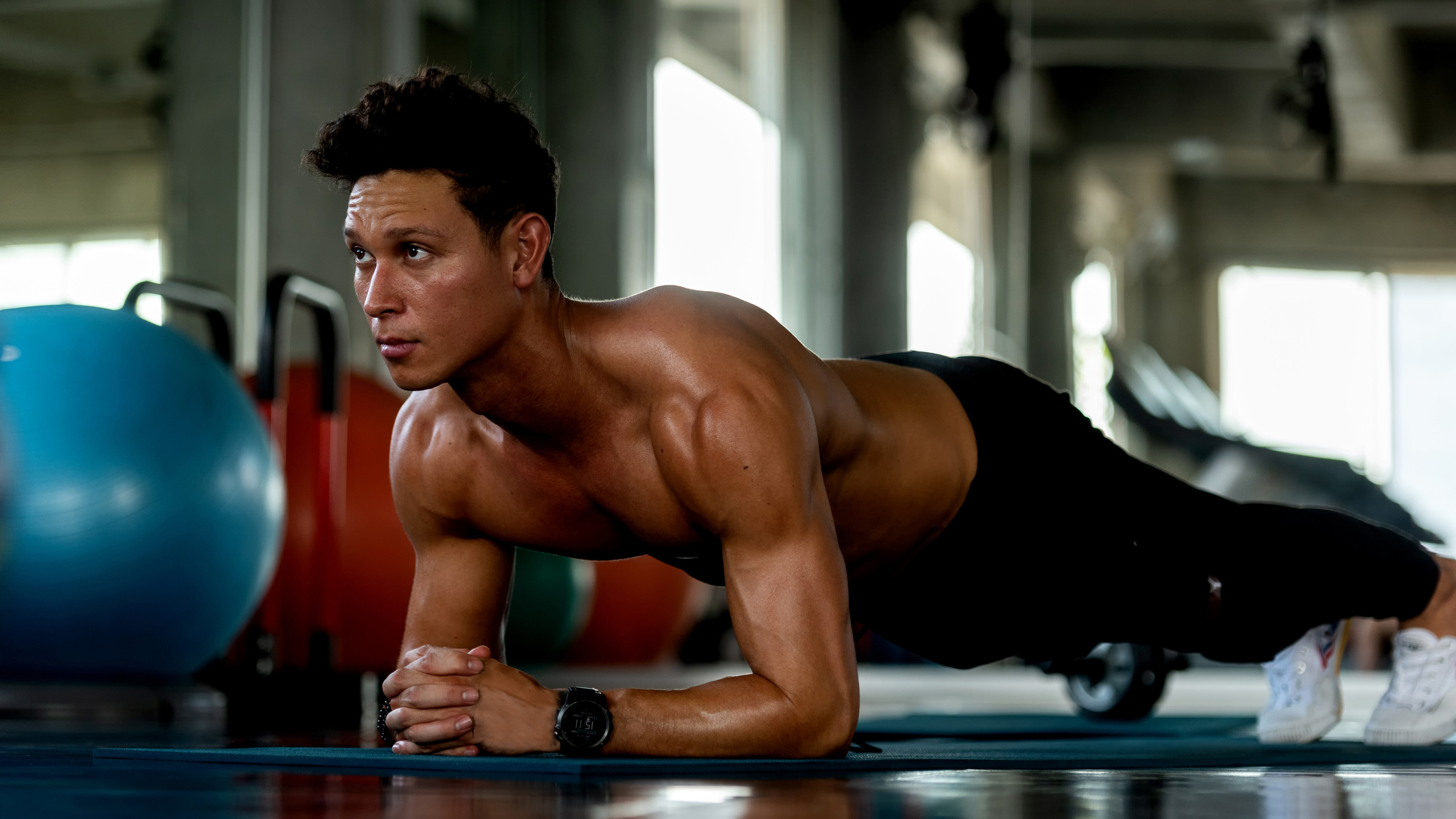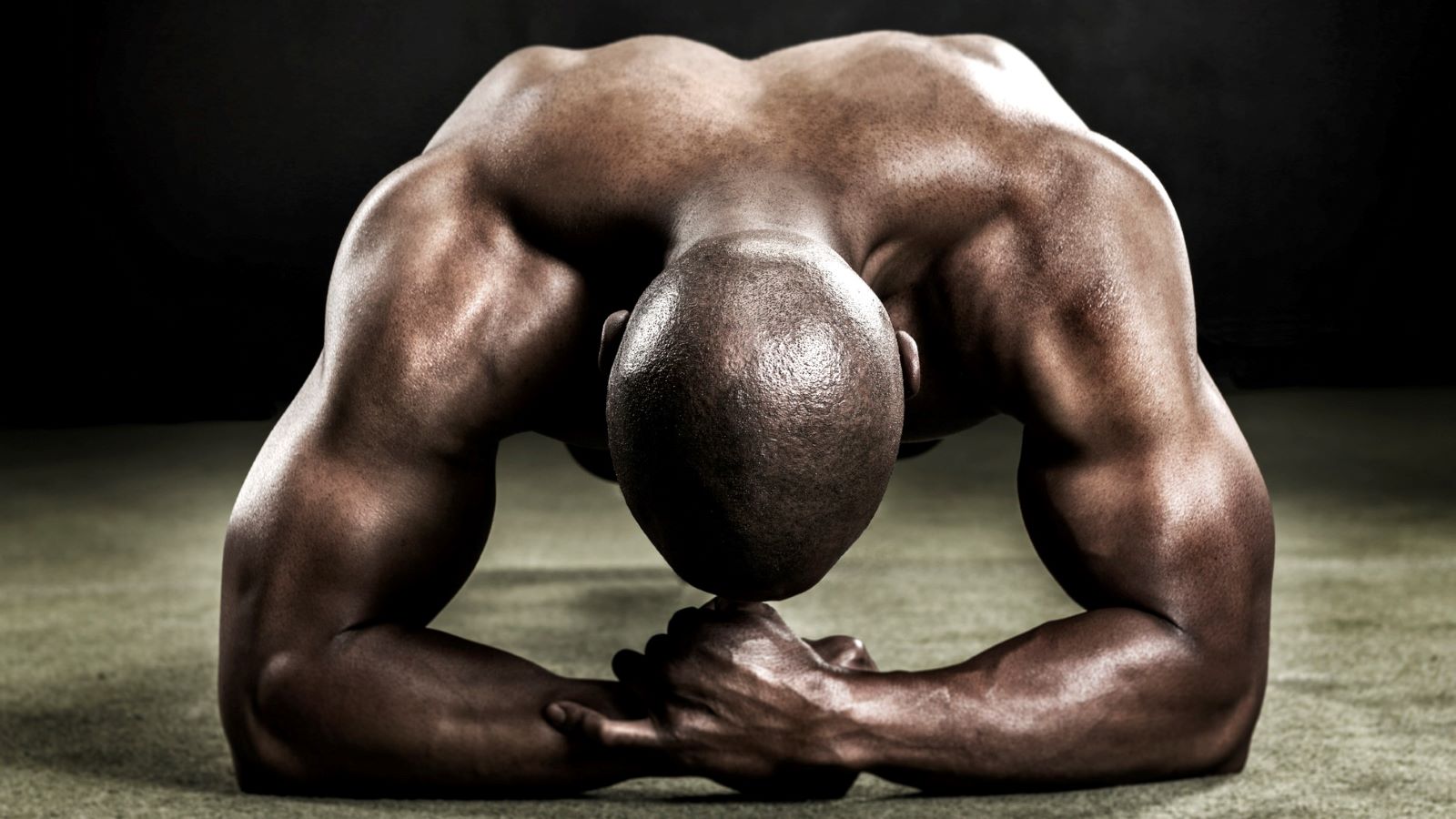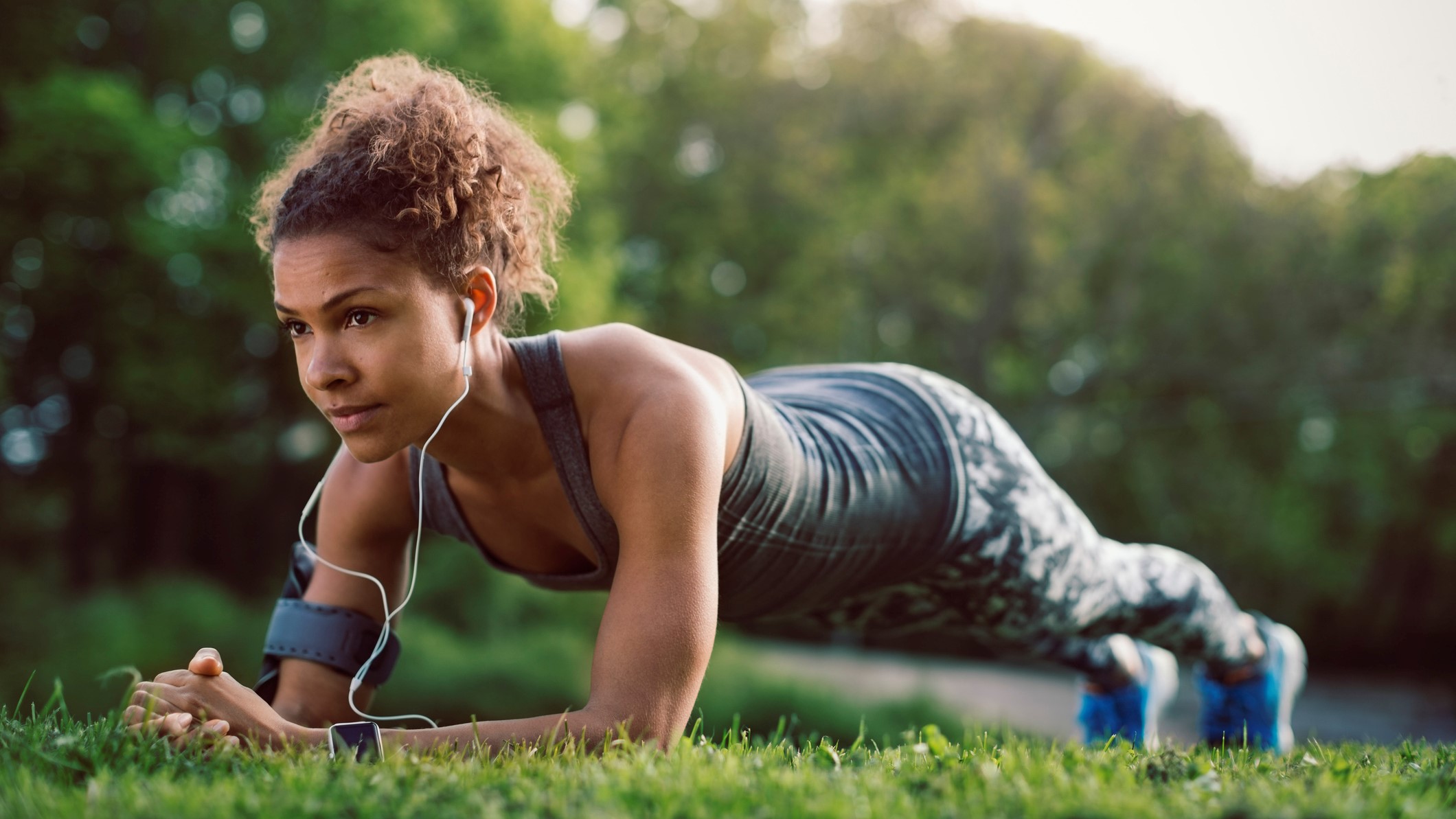

Plank is the most straightforward exercise out there: you go down on all fours and keep your body straight as long as possible. Or, wait, are you supposed to do planks on your elbows? What about side planks? What is hardstyle plank? Are planks bad for your lower back?
Once you look into the matter, you realise just how complex planks are. Not only are there loads of exciting plank variations to choose from, some of them are even great for not only strengthening the core but also building a six pack, according to research. No wonder planks are considered one of the – if not the – best core exercises you can do.

If planks are so great, why does everyone seem to hate them? After all, planks are excellent for building core strength, which includes deep abs muscles but also the lower back and muscles supporting the spine, as well as being an excellent bodyweight exercise to build shoulder, upper back and glute muscle definition.
The reason why planks are not popular is because they are hard to perform. Planks require most of your muscles to work together in order to keep your body straight when in a horizontal position and as it turns out, it is not an easy task. Many people lack the strength, especially the lower back area, to hold up the weight of their trunks for longer than a few seconds.

That said, it is worth investing your time and energy into mastering planks. Better still, since there are numerous plank variations, that can help the transition from being a plank noob to becoming the ultimate plank master. The current Master of Plank is George Hood, a 62-year-old ex-marine, who held the plank position for over eight hours in early 2020. And after that, he also did 75 push ups, just to box off the event in style.
One of the best things about planks is that this bodyweight exercise doesn’t require any equipment and can be done anywhere, anytime. As long as there is enough space for you to lay down, you can plank. That said, doing planks in bed is not the most ideal, try practicing it on a hard floor.
How to plank
Doing planks right requires you to squeeze all the major muscle groups involved in holding up the body straight in a horizontal position, including the core (of course), but also the glutes and delts (shoulders), not to mention pretty much every muscle in the body.
Sign up to the T3 newsletter for smarter living straight to your inbox
Get all the latest news, reviews, deals and buying guides on gorgeous tech, home and active products from the T3 experts
How do you squeeze the core? To practice, lay down on the floor, facing up, and pull your knees up so your legs are at a 90-degree angle. Notice the little gap between your lower back and the floor. In order to activate the core muscles, what you need to do is flatten your back by tilting the pelvis. In this position, your core is engaged.
Best plank variations
Best easy plank variation: knee plank
This variation removes some of the bodyweight from the equation, making it easier to hold the body straight. Even in this position, make sure the body from the knees up is as straight as possible.
Best intermediate plank variation: high plank
During high plank, your body is in a bit of an incline, making it less taxing on the shoulders. The high plank is the perfect step up from knee plank and the best intermediate plank variation before you start doing low planks.
Best plank variation for the obliques: side plank
Side planks are excellent to train the obliques, the muscles on both sides of the abdominals, running from the hips to the rib cage. As well as making your more attractive, strong obliques can help improve posture too.
Best plank variation for six pack abs: hardstyle plank
Hardstyle plank is very similar to regular elbow- or low-planks but as opposed to 'just' holding your body, you pull your elbows and your heel towards the centre of your body, without actually moving them. Essentially, you activate the whole core area even more by trying to pull the limbs in towards the centre of your body.

Matt Kollat is a journalist and content creator who works for T3.com and its magazine counterpart as an Active Editor. His areas of expertise include wearables, drones, fitness equipment, nutrition and outdoor gear. He joined T3 in 2019. His byline appears in several publications, including Techradar and Fit&Well, and more. Matt also collaborated with other content creators (e.g. Garage Gym Reviews) and judged many awards, such as the European Specialist Sports Nutrition Alliance's ESSNawards. When he isn't working out, running or cycling, you'll find him roaming the countryside and trying out new podcasting and content creation equipment.

